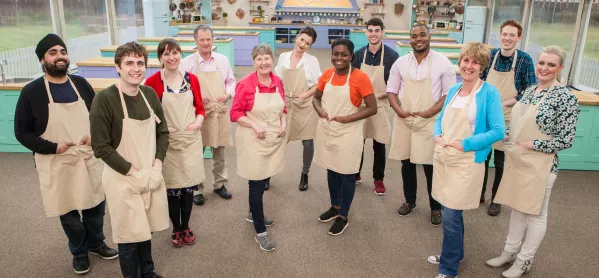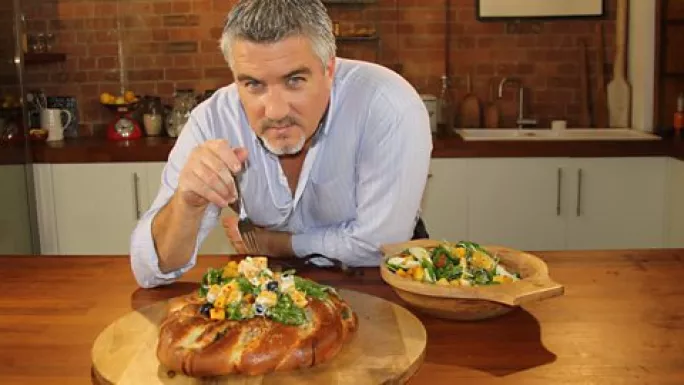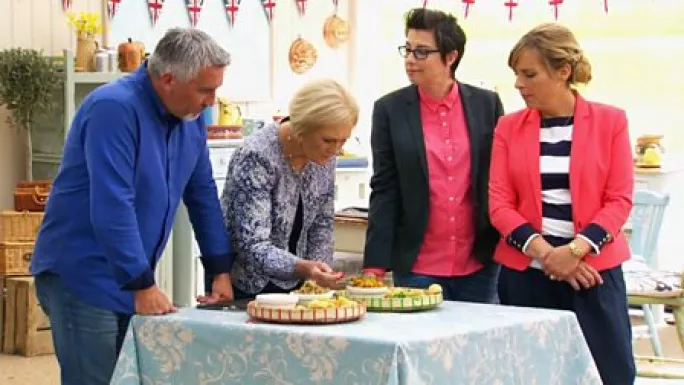- Home
- Five things teachers can learn from The Great British Bake Off
Five things teachers can learn from The Great British Bake Off
The way that Mary and Paul conduct themselves in the Bake-Off arena sets an example that educators can follow
28th October 2016, 12:01pm

Unless you’ve been living under a rock, it’s near impossible to not know that a teacher won The Great British Bake-Off final on Wednesday night.
Here are a few things teachers can take from the Bake-Off tent to the classroom…
- Have high expectations - and know why a task is tricky
When it comes to setting the technical challenge each week, Bake-Off judge Paul Hollywood doesn’t hold back: “I chose the focaccia because it’s extremely difficult to make.”
He doesn’t just choose difficult tasks though - he can explain exactly what makes them difficult and can predict the specific parts of the task that the contestants will find tricky. Predicting the tricky bits of a task - and providing children with the opportunity to tackle these - is really important when it comes to pitching challenge at the right level.
- Modelling is key
“It just says, ‘make a frangipane’…I’ve never made a frangipane.”
When it comes to the technical challenges, the contestants are given the bare minimum of instructions - if you can even call them that.
Paul’s only advice on the ciabatta challenge was: “Be patient.” Not so helpful. When it comes to creating something new, even these super-talented bakers often fall apart because they have no sense of what they are trying to make and haven’t been given the steps they need to succeed. The same goes in the classroom; in my experience, children need really good modelling and really good examples to help them move on to doing something independently.
- Assess using work samples, as well as criteria
When Mary Berry and Paul come together to judge a technical challenge, they do have certain criteria they’re looking for. But they also compare each contestant’s creations, too, and then rank them: “I’m looking for the brandy snap with the best snap.”
Daisy Christodoulou wrote this insightful post about using pupil work instead of criteria to assess.
Assessment criteria are, I think, a good starting point. But you need actual examples to help flesh them out and clarify exactly what each one means. I recently ran a staff meeting on assessing writing, and used the example of the criterion “uses expanded noun phrases” to highlight how this could look very different. All three sentences below would tick that box, but they quite obviously show different levels of progression:
* Sally hated the strict teacher.
* Sally hated the strict teacher with curly hair.
* Sally hated the ridiculously strict, dragon-like teacher with curly hair
- Remain positive yet realistic
Even when things are going belly-up and the only real option seems to be to hang up the oven gloves and go home, Mel and Sue remain positive with the contestants.
Importantly though, they never lie and give false praise. Instead they give them perspective: “It’s not the end of the world - you’ve got this batch due to come out.”
There’s no science to this, but I think it’s a really important balance to try and strike in the classroom - dishing out false praise to children is useless, and slightly insulting, but that doesn’t mean you have to lose your positive perspective either.
- Feedback at the point of learning is powerful
During the technical challenge, Paul and Mary leave the tent and give the contestants feedback once it’s all over and the challenge is done. During the other bakes, they move around each contestant, as they’re baking, and question them about what they’re doing and give them their thoughts.
For me, moving around the classroom and giving feedback while the children are on-task, whether it’s written, oral or whatever, has always proved more useful than only giving feedback at the end of a piece of work.
And there you go: five things teachers can take from the tent to the classroom. Now, as Mel and Sue might say: ready, set…teach!
Claire Lotriet is a teacher at Henwick Primary School in London. She tweets @OhLottie and blogs at clairelotriet.com
Want to keep up with the latest education news and opinion? Follow TES on Twitter and like TES on Facebook
Keep reading for just £1 per month
You've reached your limit of free articles this month. Subscribe for £1 per month for three months and get:
- Unlimited access to all Tes magazine content
- Exclusive subscriber-only stories
- Award-winning email newsletters
Recent
Most read
Most shared



